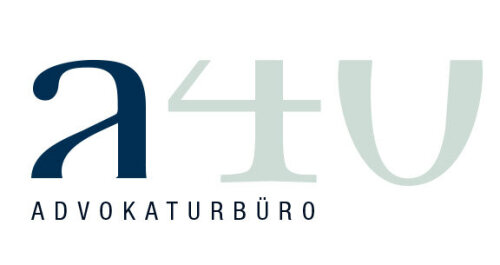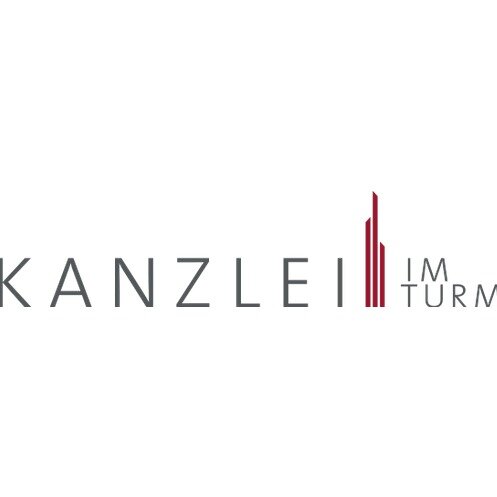Best Hiring & Firing Lawyers in Switzerland
Share your needs with us, get contacted by law firms.
Free. Takes 2 min.
Or refine your search by selecting a city:
List of the best lawyers in Switzerland
About Hiring & Firing Law in Switzerland
Switzerland's employment law is known for its stability and favorability towards both employers and employees. The country values contractual freedom but also enforces strict rules to avoid unfair practices. Employment contracts can generally be terminated easily, provided that certain legal requirements, such as notice periods and prohibitions against abusive dismissals, are met. Therefore, understanding these regulations, whether hiring new staff or terminating existing contracts, is crucial to operating within legal boundaries in Switzerland.
Why You May Need a Lawyer
Engaging a lawyer can be beneficial for various reasons in the hiring and firing arena in Switzerland:
- Contract Creation: Drafting employment contracts that comply with Swiss law yet meet the specific needs of a business or employment situation.
- Unjust Dismissals: Evaluating claims of unfair or abusive termination and strategizing the best course of action, potentially involving court proceedings.
- Separation Agreements: Negotiating and drafting separation or severance agreements to ensure a smooth transition and legal compliance.
- Discrimination Cases: Handling cases involving discrimination or harassment claims related to hiring, employment, or termination.
- Legal Representation: Representing clients in labor courts for disputes over employment or dismissal matters.
Local Laws Overview
Understanding Swiss labor law is essential for navigating hiring and firing processes effectively:
- Notice Periods: The Swiss Code of Obligations outlines specific notice periods based on the duration of employment, starting from one month in the probationary period to up to three months after ten years of service.
- Abusive Dismissals: Termination can be deemed abusive if it violates the principles of good faith, such as dismissals motivated by personal dislike or assertive of legal rights by employees.
- Protection During Illness/Injury: Restrictions apply to firing employees who are temporarily unable to work due to illness or injury, depending on their length of service.
- Mass Dismissals: Special procedures and obligations, such as consultation with employees' representatives, must be followed in the case of mass layoffs.
- Fixed Term vs. Indefinite Contracts: The nature of the contract impacts termination rights and obligations and must be carefully considered at the point of hiring.
Frequently Asked Questions
What is the minimum notice period for terminating employment in Switzerland?
The minimum notice period during the probationary period is generally seven days. Afterward, it extends to one month in the first year of service, two months between the second and ninth years, and three months from the tenth year onwards.
Can an employee be dismissed for asserting rights in the workplace?
No, it is unlawful to dismiss an employee as retaliation for exercising rights guaranteed by law, such as filing a complaint about workplace conditions.
How can an employer legally terminate an employment contract in Switzerland?
The termination must comply with the contractual terms, respect the notice period, and not be deemed abusive according to Swiss labor laws.
Are employers required to provide a reason for termination?
While not legally required, providing a reason is often recommended to avoid disputes. However, in cases of potential abusive dismissals, reasons may be scrutinized.
What are the protections against dismissal due to illness or injury?
Employees enjoy protection against dismissal during periods of illness or injury, which varies by the length of employment but typically ranges from 30 to 180 days.
What is considered a mass dismissal in Switzerland?
A mass dismissal occurs when an employer terminates at least 10, 10%, 20, 30, or 100 employees (depending on the size of the workforce) within a 30-day period, triggering additional procedural requirements.
Can an employee be terminated without a notice period?
Immediate terminations are only lawful in cases of gross misconduct, where it is unreasonable to expect the employer to maintain the employment relationship.
Are there mandatory severance payments upon termination?
Severance is not generally mandated unless specified by contract, but may apply to employees over the age of 50 with 20 or more years of service.
How are disputes about dismissals resolved?
Disputes can go to labor courts where mediation and litigation are used to resolve conflicts. Legal representation is advised in such cases.
What rules apply to fixed-term contracts termination?
Fixed-term contracts generally end with the agreed date. Early termination must meet severe criteria or face potential liability for damages.
Additional Resources
Consider the following resources for further information and assistance:
- Swiss Code of Obligations: The central reference for employment law.
- SECO (State Secretariat for Economic Affairs): Provides information and guidelines on employment rights and obligations.
- Employee Organizations and Trade Unions: Offer support and advice for employment-related issues.
- Cantonal Labor Courts: For legal proceedings and formal dispute resolutions.
Next Steps
If you need legal assistance regarding hiring and firing in Switzerland, consider the following steps:
- Consult a Lawyer: Seek legal advice from a professional experienced in Swiss labor law to evaluate your specific situation.
- Evaluate Legal Options: Assess whether mediation, negotiation, or litigation is the best approach for your case.
- Prepare Documentation: Gather all relevant documents such as employment contracts, correspondence, and evidence pertinent to your case.
- Contact Relevant Authorities: Reach out to appropriate governmental bodies or industry organizations for guidance and support.
- Stay Informed: Keep up with changes in employment law to ensure compliance and protect your rights or interests.
Lawzana helps you find the best lawyers and law firms in Switzerland through a curated and pre-screened list of qualified legal professionals. Our platform offers rankings and detailed profiles of attorneys and law firms, allowing you to compare based on practice areas, including Hiring & Firing, experience, and client feedback.
Each profile includes a description of the firm's areas of practice, client reviews, team members and partners, year of establishment, spoken languages, office locations, contact information, social media presence, and any published articles or resources. Most firms on our platform speak English and are experienced in both local and international legal matters.
Get a quote from top-rated law firms in Switzerland — quickly, securely, and without unnecessary hassle.
Disclaimer:
The information provided on this page is for general informational purposes only and does not constitute legal advice. While we strive to ensure the accuracy and relevance of the content, legal information may change over time, and interpretations of the law can vary. You should always consult with a qualified legal professional for advice specific to your situation.
We disclaim all liability for actions taken or not taken based on the content of this page. If you believe any information is incorrect or outdated, please contact us, and we will review and update it where appropriate.
Browse hiring & firing law firms by city in Switzerland
Refine your search by selecting a city.
















